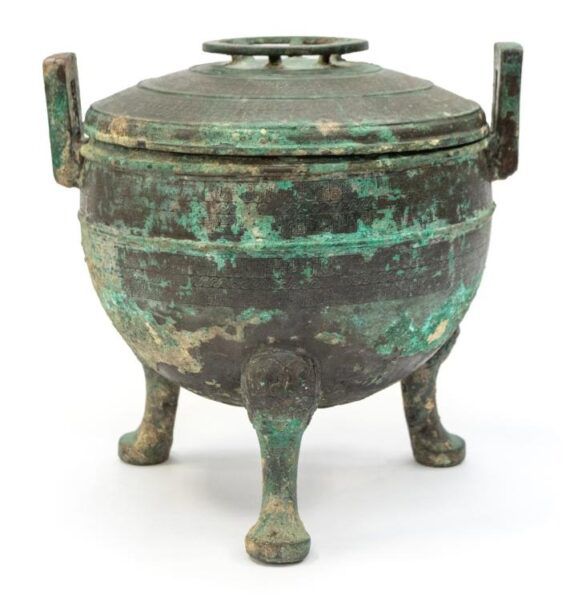#Great #Discoveries #Ancient #Chinese #Cauldron #Auctioned #WorthPoint

Image Source: Hansons Auctioneers
Antiques expert Charles Hanson recently found an ancient bronze ding, a ceremonial Chinese cauldron, during a home visit in Yorkshire, England, according to The Yorkshire Post. Hanson noted that the ding could be around 2,000 years old and from China’s Shaanxi province. He also pointed out that members of the Han dynasty may have used the ding.
Hanson stated that the ding represents an “ancient and important Chinese antique” and was in “remarkable condition” at the time of discovery. This finely cast cauldron features intricate patterns on its top and sides.
After the discovery, the ding was auctioned on November 30, 2023. It was expected to draw interest from antiques collectors from around the world, Hanson said. Ultimately, Hansons Auctioneers sold the ding for £4,000 (approximately $5,053) after estimating its value between £4,000 and £6,000.
A ding is “one of the most important ritual vessel types,” The Metropolitan Museum of Art states. Often, people used dings for cooking, storage, and ritual offerings. People originally cast dings from bronze during the Shang dynasty, which preceded the Han dynasty by about 1,400 years.
Along with serving as cauldrons, dings were used as incense burners. They were also viewed as symbols of power and authority, Hanson noted. Many dings displayed masks and other decorations on them. Some featured motifs that were believed to protect against evil spirits.
In certain instances, people placed animal parts and blood inside of dings and put the cauldrons into tombs. And some Chinese emperors were “apparently buried with nine dings” as a symbol of wealth and power, Hanson stated.
Those who want to view Chinese dings that date back hundreds or thousands of years can see tens of thousands of items in the WorthPoint Price Guide.
Dan Kobialka is a self-employed content writer and editor with about a decade of experience. He produces content across a wide range of industries, including antiques, insurance, and real estate. To learn more about Dan, please visit his website.
WorthPoint—Discover. Value. Preserve.




